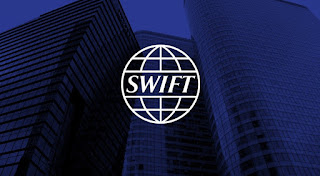200 countries and territories are connected to SWIFT
Now SWIFT, the new risks for banks!
According
to the International Monetary Fund (IMF) as background documentation for the
periodic consultation with Belgium, Financial System Stability Assessment paper
on Belgium was prepared by IMF to focus on Belgium Financial system stability
assessment.
Stress
tests on banks and insurance companies confirm that they can absorb credit,
sovereign, and market losses in the event of a severe deterioration in macro financial
conditions. The risk of interbank contagion through direct exposures is low.
Insurance companies are also generally resilient and the losses incurred by
those that belong to banking groups do not threaten the soundness of those
groups.
The
oversight arrangement for the Belgium-based Society for Worldwide Interbank
Financial Telecommunication (SWIFT) has proven effective, but is being
challenged by new risks. Key among these are cyber security incidents in
SWIFT’s global user network.
To strengthen the NBB's ability to exercise its
role as overseer and protect Belgium's reputation as a key hub for FMIs, the authorities
should consider complementing the NBB’s use of moral suasion with regulatory
and supervisory powers and should enhance the NBB’s ability to share
information with foreign authorities.
De
facto Belgium is home to SWIFT, a critical service provider (CSP) for FMIs
across the world. Many systemically important FMIs, their participants, and
correspondent banks are dependent on SWIFT’s core financial messaging services.
At end-September 2017, 239 market infrastructures were using SWIFT. Around
11,000 institutions across 200 countries and territories are connected to
SWIFT.
SWIFT
messaging services support domestic and international payments and facilitate
the settlement of payments and securities transactions, including in central
banks’ monetary operations. Belgium, as a financial center, and the NBB as the
authority in charge of its oversight, face reputational risk in case of an
incident (including a cyber security incident) impacting SWIFT’s core services.
NBB
has recognized SWIFT as a critical infrastructure under the 2011 Law on the
Protection and Security of Critical Infrastructures, which subjects SWIFT to
additional requirements for security planning.
IMF
report says, Belgium should continue efforts to enhance the effectiveness of
its anti-money laundering/ countering the financing of terrorism (AML/CFT)
framework. Action Task Force (FATF) evaluation found a well-established regime,
notwithstanding some deficiencies. Since then, steps have been taken to
strengthen the framework, notably with respect to combating the financing of
terrorism and AML/CFT supervision.
However,
efforts need to continue to fully implement the FATF’s recommended actions.





Comments
Post a Comment